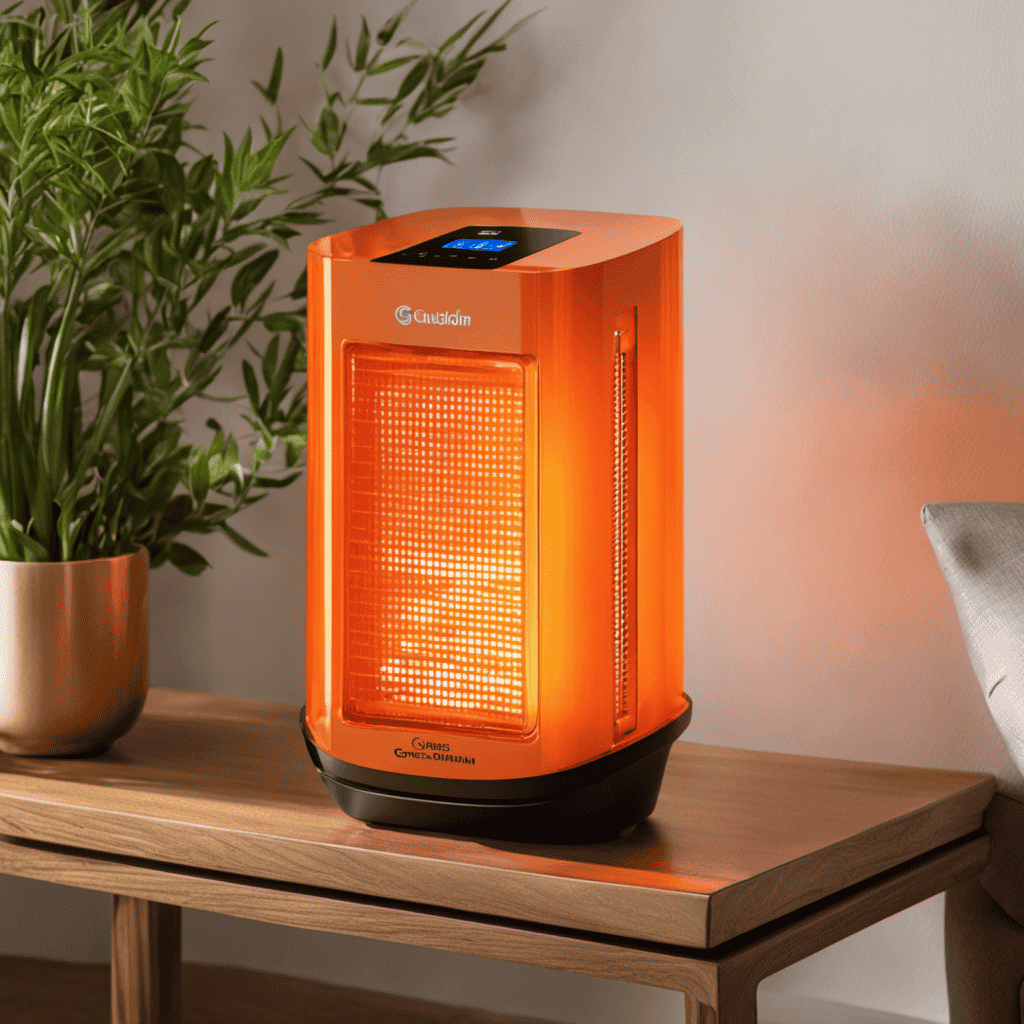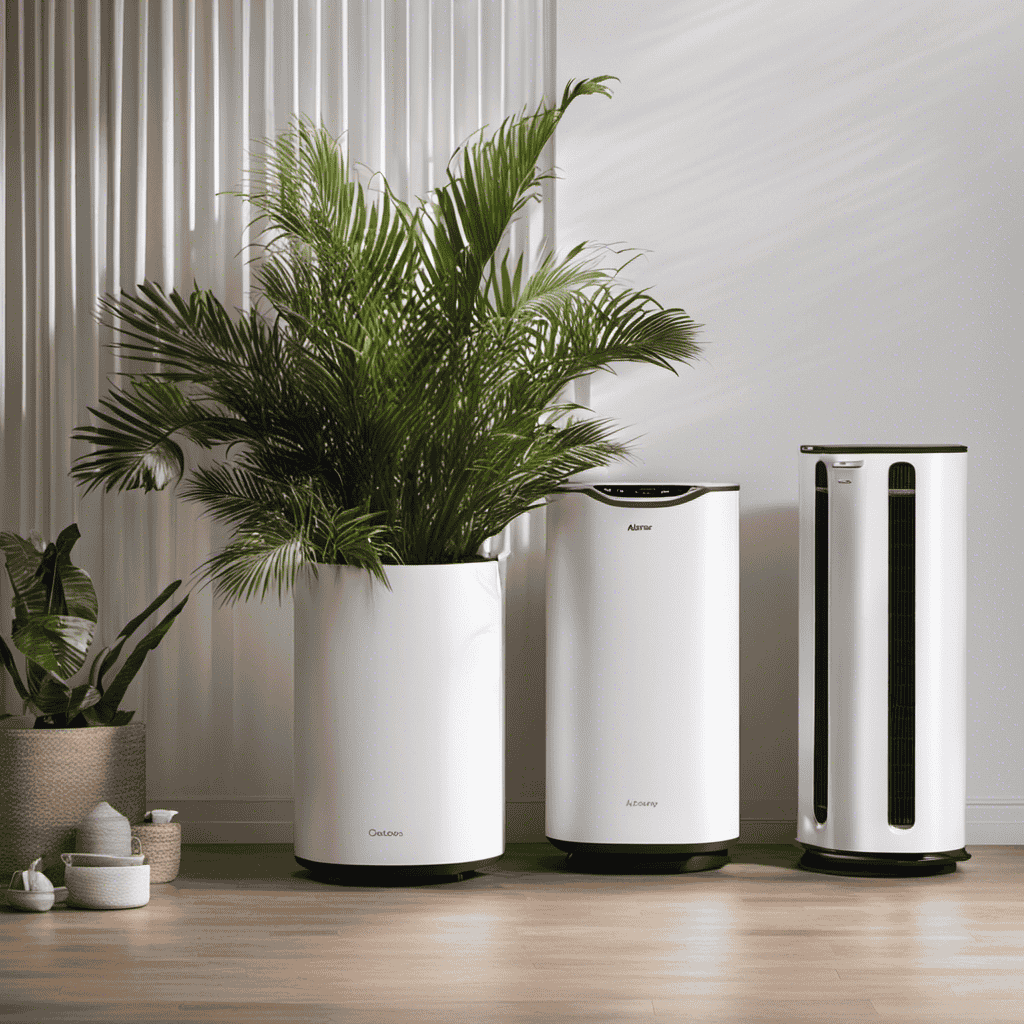Skipping pre-filters removes the first barrier that catches larger debris and dirt, which means more contaminants can reach your main filter. This can cause clogging, reduce flow rates, and make your system work harder, leading to higher energy costs and more frequent maintenance. Over time, it can even damage downstream components and shorten the lifespan of your system. Stay with us to discover more about how pre-filters protect your equipment and save you money.
Key Takeaways
- Larger debris can clog main filters, reducing flow and system efficiency.
- Skipping pre-filters increases wear and tear on primary filtration components.
- Without pre-filters, contaminants may cause discoloration, odors, and decreased water or air quality.
- System components may experience more frequent breakdowns and have a shorter lifespan.
- Overall maintenance costs rise due to increased damage and the need for more frequent replacements.

Have you ever considered skipping pre-filters in your filtration system? It might seem like a way to save money or simplify your setup, but doing so can profoundly impact the filtering process and overall performance. Pre-filters are designed to catch larger debris, dirt, and particles before they reach the main filter. When you bypass them, these larger contaminants can quickly clog or damage your primary filtration components, leading to a diminished filtering impact over time.
The performance implications of skipping pre-filters are substantial. Your system may experience reduced flow rates because accumulated debris restricts water or air movement through the filter. This creates a strain on the entire system, decreasing efficiency and increasing energy consumption. You might notice that your filtration system needs more frequent maintenance or replacement parts, which ultimately costs more in the long run. Additionally, without pre-filters, dirt and larger particles can bypass the main filter and enter sensitive equipment or appliances downstream, leading to potential damage or decreased lifespan of those components.
Another critical aspect to consider is how skipping pre-filters affects water or air quality. Pre-filters act as the first line of defense, removing larger impurities that can cause discoloration, foul odors, or particulate matter in your water or air supply. Without this initial barrier, your filtration system’s ability to produce clean, clear output diminishes. This can affect everything from the taste of your drinking water to the air quality in your home or industrial environment. Over time, the accumulation of larger contaminants can also promote bacterial growth or mold, further degrading the quality of your output and posing health risks.
Furthermore, neglecting pre-filters can void warranties or lead to costly repairs. Manufacturers often specify the need for pre-filters to protect the system and maintain ideal performance. Skipping this step might save you a little initially, but it can ultimately lead to more frequent breakdowns, reduced lifespan of the entire filtration setup, and higher repair costs. If you’re aiming for an efficient, dependable filtration system, it’s best not to cut corners where pre-filters are concerned. They are a vital component that enhances the filtering impact and preserves system integrity, making your investment last longer and perform better.
In addition, understanding the importance of filter materials can help you choose the most effective pre-filters, ensuring optimal protection and longevity for your system.
Frequently Asked Questions
Can Skipping Pre-Filters Damage My Main Filtration System?
Skipping pre-filters can lead to chemical buildup inside your main filtration system, which may cause blockages or damage over time. Without pre-filters, your equipment has to work harder, reducing its longevity and increasing the risk of failures. Regularly using pre-filters helps protect your system, ensuring it runs efficiently and lasts longer. Neglecting this step can result in costly repairs and decreased filtration performance.
How Often Should I Replace Pre-Filters?
Think of your pre-filters as the first line of defense—neglecting them is like leaving your front door wide open. You should replace your pre-filters every 1-3 months, depending on usage and filter quality. Regular filter maintenance not only prevents dirt buildup but also helps extend the lifespan of your main filtration system. Stay proactive, and you’ll enjoy cleaner air and smoother operation longer.
Do All Appliances Require Pre-Filters?
Not all appliances need pre-filters, but many do for ideal appliance maintenance. Pre-filters help extend the filter lifespan and protect your appliance from debris and impurities. If you skip them, you risk damaging your device or reducing efficiency. Check your appliance’s manual to see if pre-filters are recommended. Regularly replacing filters ensures your appliance works smoothly and lasts longer, saving you money and hassle in the long run.
What Are the Signs of a Clogged Pre-Filter?
You’ll notice signs of clogging in your pre-filter through reduced water flow or pressure, which indicates it needs maintenance. Clogged pre-filters often cause appliances to work harder, increasing energy use and wear. Regular pre-filter maintenance helps prevent these issues and guarantees your system runs smoothly. Keep an eye out for decreased efficiency or strange noises, as these are common signs of a clogged pre-filter that needs cleaning or replacement.
Are Pre-Filters Necessary for Environmental Safety?
Imagine the hidden threat lurking in your air quality—skipping pre-filters might seem harmless, but it risks letting debris and pollutants bypass your system. Pre-filters are vital for filter maintenance, protecting your main filters and ensuring cleaner air. Without them, you could compromise environmental safety, leading to poor air quality and potential health issues. Don’t underestimate their role; skipping pre-filters can silently undermine your entire air filtration system.
Conclusion
Skipping pre-filters might seem like a quick fix, but it can lead to clogged main filters and reduced system efficiency. Over time, debris builds up, causing potential damage and costly repairs. Do you really want to risk compromising your system’s performance just to save a little time or money? Remember, investing in pre-filters now keeps your system running smoothly longer—so why not give your equipment the protection it deserves?









